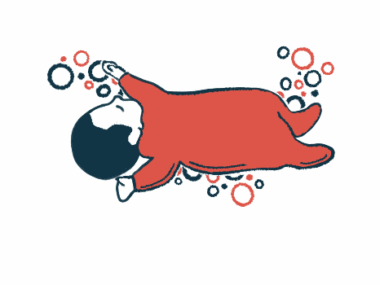Diacomit, Fintepla found better than Epidiolex for seizure control
Meta-analysis: Diacomit best for stopping seizures altogether in Dravet patients
Written by |

Add-on therapies Diacomit (stiripentol) and Fintepla (fenfluramine) were found to be more effective for seizure control in Dravet syndrome patients than Epidiolex (cannabidiol) in a recent indirect analysis of clinical trial data.
Overall, Diacomit was best for stopping seizures altogether, and was associated with fewer treatment discontinuations due to side effects than the other two therapies.
“These results may inform clinical decision-making and the continued development of guidelines for the treatment of people with DS [Dravet syndrome],” researchers wrote.
The study, “Comparative efficacy and safety of stiripentol, cannabidiol and fenfluramine as first-line add-on therapies for seizures in Dravet syndrome: A network meta-analysis,” was published in Epilepsia. The study was funded by Biocodex, the manufacturer of Diacomit.
Recurrent, unprovoked seizures are the hallmark symptom of Dravet syndrome. While a number of anti-seizure medications are available to patients, seizures in this population are often difficult to control, requiring the use of multiple therapies at once.
Diacomit, Fintepla, Epidiolex approved as add-on therapies for Dravet
Diacomit, Fintepla, and Epidiolex are all approved in the U.S., Europe, and other regions as add-on therapies for Dravet syndrome. That means they are not intended to be used alone, but can be used in addition to standard anti-seizure medications to allow for better disease control.
Each of these medications were approved based on findings from placebo-controlled clinical trials, but no studies have directly compared their effectiveness.
In light of that fact, the researchers conducted a network meta-analysis of data from two previous clinical trials of each therapy. This type of analysis is a way of statistically analyzing data that comes from several separate studies to make an indirect comparison.
Results showed all three add-on therapies were better than a placebo for achieving clinically meaningful reductions (at least a 50% drop) in monthly convulsive seizure frequency.
Still, Diacomit and Fintepla were found to be significantly superior to approved doses of Epidiolex in this metric, regardless of whether or not it was used with or without approved anti-seizure medication Onfi (clobazam).
Diacomit, Fintepla found superior to Epidiolex for reducing convulsive seizures
Likewise, analyses indicated Diacomit and Fintepla were significantly superior to Epidiolex for achieving profound reductions (at least a 75% drop) in convulsive seizure frequency.
Diacomit was significantly better than other add-on treatments for complete seizure freedom, or a 100% reduction in seizure frequency, with a risk difference of around 30% relative to the other treatments.
No significant differences were observed in the incidence of patients experiencing serious adverse events. The risk of discontinuing Diacomit due to side effects was significantly lower than with the other therapies.
Overall, the findings indicate Diacomit is “at least as effective” as Fintepla for seizure control in Dravet syndrome, and that both are more effective than Epidiolex, according to the researchers.
Such findings are in line with earlier studies, and also support expert recommendations stipulating that Diacomit and Fintepla should be used ahead of Epidiolex in Dravet treatment.
The researchers did note certain limitations need to be considered, including the relatively short length of the clinical trials — where the medications were compared to a placebo for no more than four months — timing differences between the studies, and varying use of other anti-seizure medications.
Nonetheless, “despite some data limitations, the results appear to be reliable, support international consensus-based recommendations that position stiripentol and fenfluramine ahead of cannabidiol in the DS [Dravet syndrome] treatment pathway,” the team concluded.







